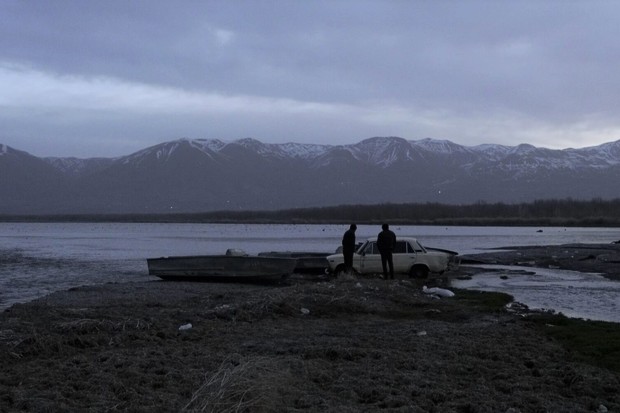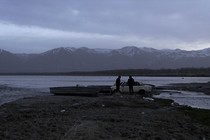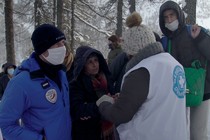Review: Landshaft
- German director Daniel Kötter attempts to grasp the bigger picture of the ongoing Armenian-Azerbaijani conflict

More specifically than the English word “landscape”, the German term Landschaft refers to the cultural context of an area that distinguishes it from other areas. No wonder, then, that German filmmaker Daniel Kötter has chosen precisely this word, or a slight variation of it, for the title of his visually breathtaking documentary Landshaft [+see also:
interview: Daniel Kötter
film profile], which opened the Regional Panorama competition of the Golden Apricot International Film Festival. Besides capturing the agony and ecstasy of the dramatic geography that lies somewhere between the Sotk gold mine and Lake Sevan, the film also sketches a general portrait of the settlements and their inhabitants – be they people or animals – who are fated to live in the most perilous hotspot of the military conflict between Armenia and Azerbaijan. The author’s neutral viewpoint, albeit underlined with a highly subjective shooting approach, follows the flow of life and the figures from a distance, but most importantly, it records conversations that unveil details about how people from both sides of the conflict relate to each other in this complex situation.
After an opening scene with a motorboat plying the lake’s waters comes a sequence in which two men discuss plans for the near future next to an emblematic Soviet Zhiguli: vague work prospects potentially involving the gold mine, the potato business or joining the army. We see their small figures from behind and from afar, and initially, one could consider this initial sequence a gradual introduction to the main characters. However, we almost never get to see their faces, although they do indeed dominate the film’s action by driving around muddy roads in the rattling Zhiguli. When, for a moment later on, the camera moves to the interior and more intimate domestic setting of the miners’ housing, people’s faces are again not portrayed – rather, they participate in the overall orchestration of the setting with their voices and physical gestures. The main topic discussed is the mine, and the relationships between the Armenians, Azerbaijanis and Russians working there, while the change in working conditions mirrors the conflict. Without soldiers or weapons necessarily entering the frame, the war discourse inevitably pierces the atmosphere through voices on the radio and private conversations: this terrifying, militarised context is present and all-encompassing, impacting everyday life and shaping future prospects. It seems that it isn’t particular people, but rather the overall mood in the area that constitutes Kötter’s focus.
Scripted, shot, directed, edited and produced by Kötter, the film is a piece of auteur cinema right down to the very essence of the word. The helmer adopts the position of a silent observer and listener who tries to gather together the pieces of the puzzle of this complex political, social and cultural environment which unfolds in front of him. Whether consciously or intuitively, he manages to reproduce a significant aspect of the Armenian “landshaft” – the divinity of the mountainous terrain that implies protection, and its sheer power in the background. Against it, a human figure looks small, helpless and incapable of controlling its predetermined destiny. Whatever other preoccupations the people who inhabit this landscape might have, sooner or later, they end up talking about the natural realm around them, which is not merely decoration, but an element determining their very existence.
Landshaft was produced by Germany’s Daniel Kötter and Armenia’s Nune Hovhannisyan.
Did you enjoy reading this article? Please subscribe to our newsletter to receive more stories like this directly in your inbox.



















